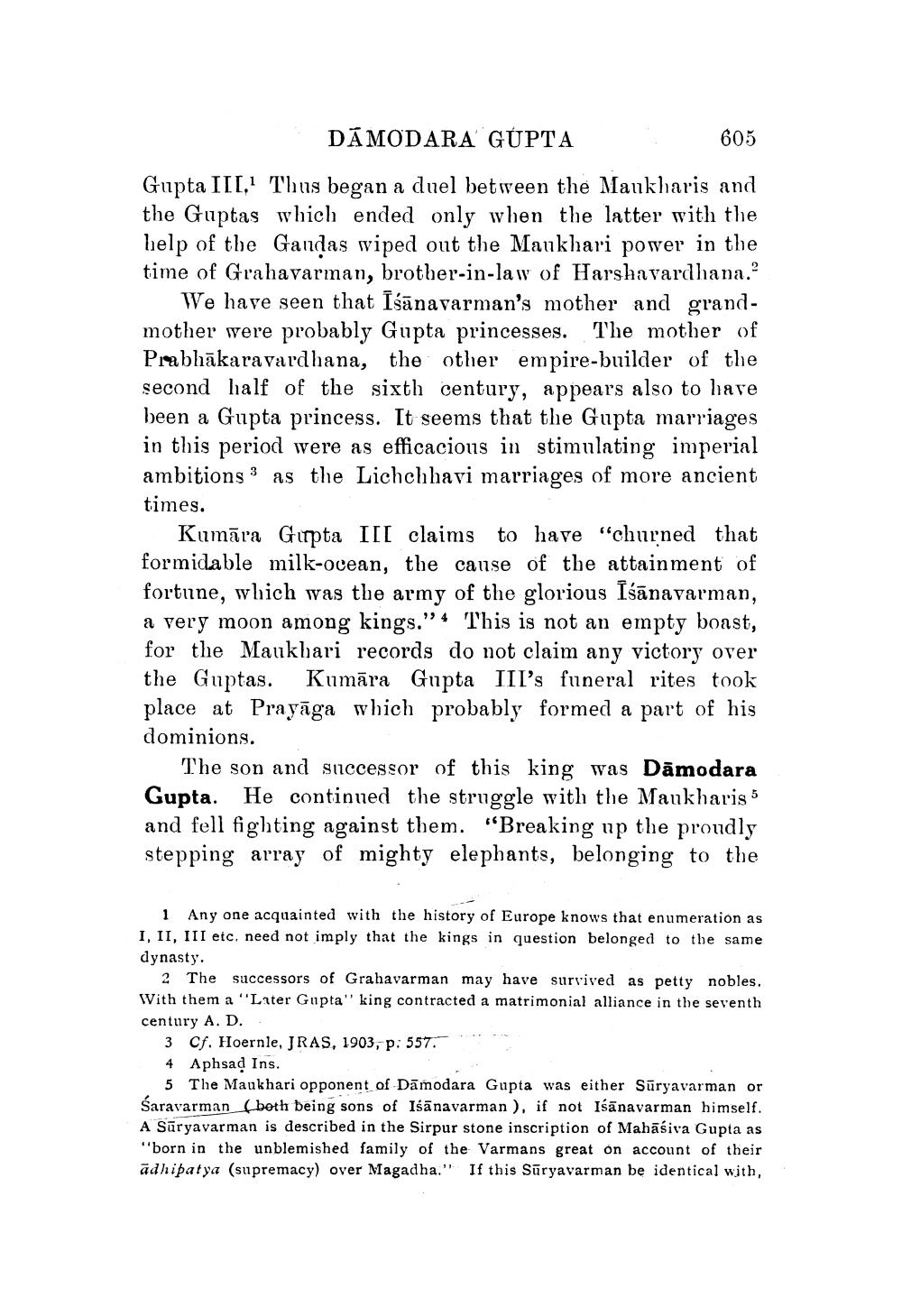________________
DĀMODARA' GUPTA
605
Gupta III. Thus began a duel between the Mauklaris and the Guptas which ended only when the latter with the help of the Gandas wiped out the Maukhari power in the time of Grahavarman, brother-in-law of Harshavardhana.”
We have seen that Išānavarman's mother and grandmother were probably Gupta princesses. The mother of Prabhākaravardhana, the other empire-builder of the second half of the sixth century, appears also to have been a Gupta princess. It seems that the Gupta marriages in this period were as efficacious in stimulating imperial ambitions as the Lichchhavi marriages of more ancient times.
Kumāra Gupta IIC claims to have "churned that formidable milk-ocean, the cause of the attainment of fortune, which was the army of the glorious īśānavarman, a very moon among kings." 4 This is not an empty boast, for the Maukbari records do not claim any victory over the Guptas. Kumāra Gupta III's funeral rites took place at Prayāga which probably formed a part of his dominions.
The son and successor of this king was Dāmodara Gupta. He continued the struggle with the Maukharis 5 and fell fighting against them. "Breaking up the proudly stepping array of mighty elephants, belonging to the
1 Any one acquainted with the history of Europe knows that enumeration as I, II, III etc, need not imply that the kings in question belonged to the same dynasty.
2 The successors of Grahavarman may have survived as petty nobles. With them a "Later Gupta'' king contracted a matrimonial alliance in the seventh century A. D.
3 Cf. Hoernle, JRAS, 1903, p. 557. 4 Aphsad Ins.
5 The Maukhari opponent of Damodara Gupta was either Süryavarman or Saravarman (both being sons of iśānavarman ), if not iśānavarman himself. A Sūryavarman is described in the Sirpur stone inscription of Mahāśiva Gupta as "born in the unblemished family of the Varmans great on account of their adhipatya (supremacy) over Magadha." If this Suryavarman be identical with,




